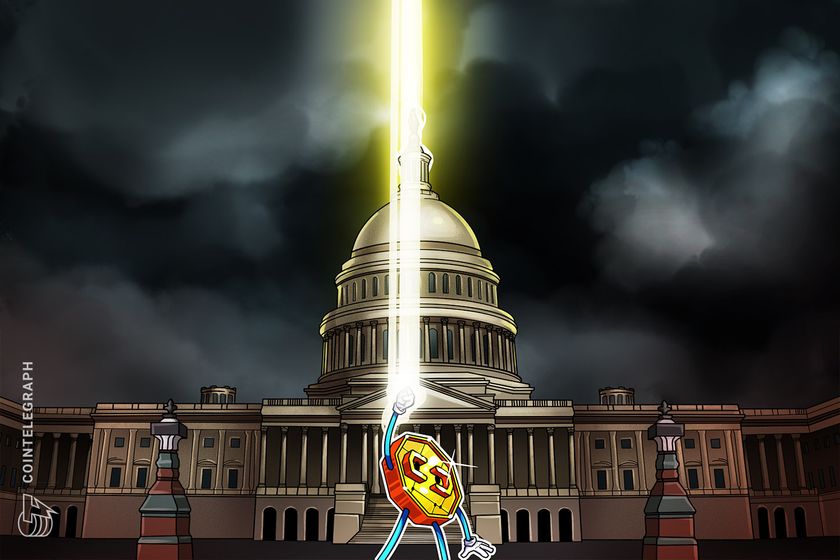
A group of American Democratic senators has published its own version of the directives to influence the legislation to establish a cryptographic market structure, focusing on taking time towards a “strong and bipartite result”.
In a Tuesday opinion, 12 Democratic senators, several of which are within the banking committee, unveiled a framework of legislation on the structure of the market in response to the plans of the Republicans.
Like the latest Republican project published on September 5, the Democrats framework includes provisions for regulatory clarity and the establishment of rules by which the American Commission for Securities and Exchange (SEC) and the Commodity Futures Trading Commission (CFTC) could manage digital assets.
“We owe it to millions of Americans who participate in this market to create clear road rules that protect consumers and safeguard our markets,” wrote the senators. “We must also make sure that digital assets are not used to finance illicit activities or to align the pockets of politicians and their families.”
https://www.youtube.com/watch?v=ndkoqwegfg
With the Democrats in minority in the Senate, it is not clear if the Republicans will examine the recommendations of the framework within the framework of their plans to bring the bill on the banking committee by October, of the Agriculture Committee by November and legal by 2026.
The Republican senator Tim Scott, who chairs the banking committee, said in August that he expected democrats “between 12 and 18” to support the majority version of the bill, entitled The Responsible Innovation Act.
In relation: The American Congress is looking for a report on ironing the details of the Bitcoin reserve
“The achievement of a solid bipartite result will require time and cannot be precipitated,” wrote the 12 Democrats. “We are impatient to work on this with our republican colleagues.”
Take the current leadership shortage to the CFTC
The democratic framework, which presented “seven key pillars”, includes protections proposed to combat illicit finance and “fill the gap in the cash market” for digital assets not considered as titles. However, the document also personally called US President Donald Trump in recommendations to ensure “fair and effective regulations” in cryptographic markets.
“The design and application of a digital asset framework will require additional resources for the SEC, the CFTC and the Treasury Service,” said the proposed framework. “In addition, President Trump dismissed countless Democratic commissioners with independent regulatory organizations and has shown little interest in the appointment of new civil servants.”
The management of the CFTC is currently made up of a commissioner, the acting president Caroline Pham, after the departure of all the other chiefs of the agency this year. The Senate should examine the appointment of Brian Quintenz, the choice of Trump to replace Pham as president.
Pham said she would leave the CFTC after the Senate confirms a replacement. Trump had not named anyone else on Tuesday to fill the four remaining seats at the Commission.
The chances of the bill adopting by 2026?
Following the adoption of the Act on Engineering – a bill to regulate the payment floors – in July, the Senate should address the bill on the structure of the market as one of its main priorities after having broken for a recess of one month.
The version of the Chamber of Legislation, called the Clarity Act, was adopted with significant bipartisan support, while an anti-CBDC bill (Central Bank digital currency) received only two Yay of Democrats votes.
While many senators who have signed the Tuesday framework voted to adopt the Act on Engineering, it is not clear if this support will extend to the structure of the market, in particular with the recommendations concerning “corruption and abuse”.
The document recommends that any bill include limits to elected officials and their families to “deliver, approve or take advantage of digital assets during its mandate” and strengthen the disclosure requirements.
In addition to their concerns about leadership in independent regulatory agencies, the Democrats of the Senate said that Trump had “turned to digital asset projects to enrich himself and his family”.
Trump’s bonds with industry through their cryptographic company supported by the World Liberty Financial Family, their personal personal and the mining company of their family could complicate efforts to strengthen bipartite support for cryptographic legislation, especially among Democrats such as Senator Elizabeth Warren, which has often criticized the crypto sales of the president.
Review: Can Robinhood or can Kraken tokenized stocks ever be really decentralized?